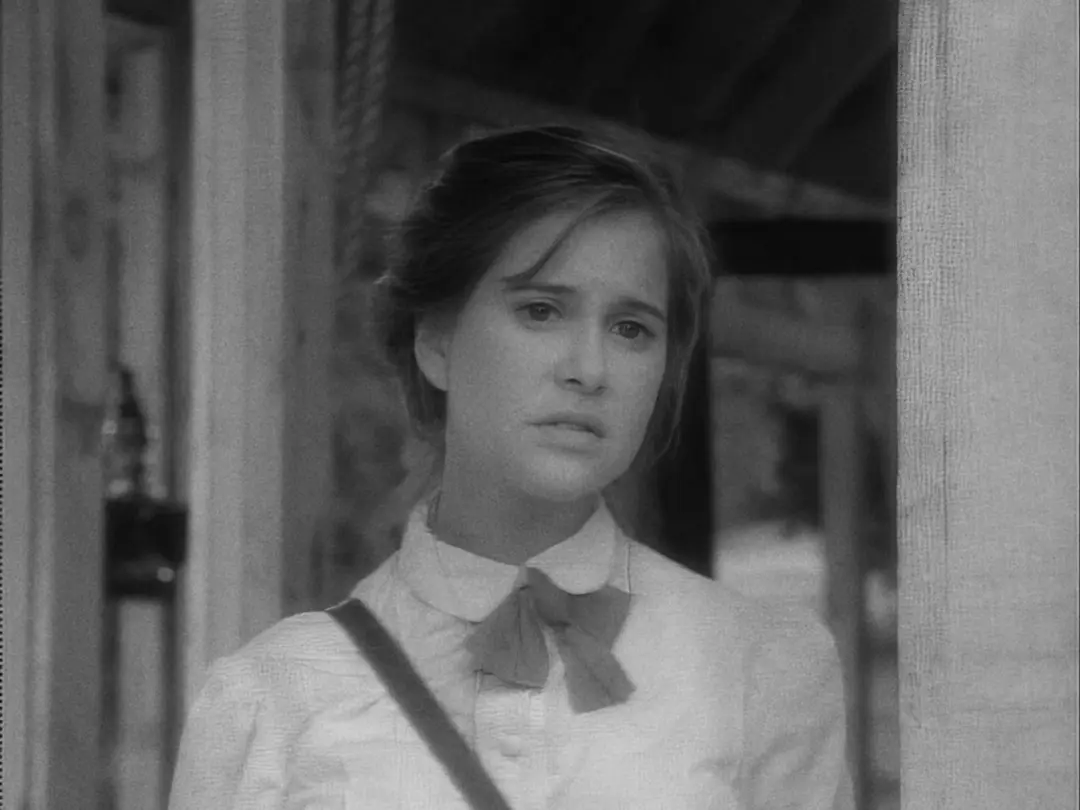by MIKE HUGHES
Gannett News Service
Everyone, we’re told, has one great story to tell.
Then there was Catherine Marshall. She had two, right at home. Marshall turned her husband’s life as a minister into “A Man Called Peter.” It became a best seller and—quickly—a movie. Then she turned her mother’s life into “Christy.” It became a best seller and very slowly a TV series. How slowly? MGM sat on the rights for 25 years. “Things happen in our business,” producer Barney Rosenweig says. “It’s an amazing story.” It is, and it could be a belated success.
“Christy” premieres as a two-hour movie, at 8 p.m. on Easter Sunday on CBS; it then begins a trial run, at 8 p.m. Thursdays. Yes, that’s the old “Waltons” spot. “Christy” has different mountains (the Smokys), a different era, but the same values. “We lived in a tiny little town for three months,” says Kellie Martin, who has the title role. “I put the corset on every day and I was just there.” She was stepping into the real life of the late Leonora Wood. Educated and earnest, Wood took an unusual call. At 19, she moved to the mountains, to teach at a mission school.
“I would never want to do what (she) did,” Martin marvels. “I admire her very much, for leaving her family and … going to this backwoods settlement — going into a classroom full of children who couldn’t read, write.” People like this — preachers and teachers, stepping into rugged areas — backed the push west. “It was part of the American frontier, especially at that time,” says Ken Wales, another “Christy” producer. “Americans moving west in the 1800s were very much coupled with all denominations encouraging an education system.”
Most of the stories disappeared. Then came Catherine Marshall. After writing her husband’s story, Marshall decided her mother had a great story, too. She spent the next nine years drawing out memories. The result was a best seller in 1967, attracting Hollywood. “MGM paid a quarter-of-a-million dollars (for) the book,” Rosenzweig says. “Now, in 1967, for a quarter-of-a-million dollars, you could buy a lot of Beverly Hills real estate. “That was a substantial investment. They went on and spent another several-hundred-thousand dollars on it.” And then, in that Hollywood way, MGM forgot about it.
Wales, a preacher’s son, tried to buy the “Christy” rights for a decade. In 1986, he succeeded. “I literally mortgaged the house and went deep into life savings, over this period of time,” Wales says. “It’s taken me 17 years, over this odyssey.” Still, he couldn’t get a “Christy” movie made. The book had sold seven million copies, but Hollywood kept ducking. Then CBS scored with “Dr. Quinn, Medicine Woman.” Program chief Jeff Sagansky asked Rosenzweig if he knew anything about “Christy.” Rosenzweig says he had a quick response. “I said sure, I know the guy who owns it.'” Soon, he had a deal, skipping the usual star system. Tyne Daly — who won four Emmys in Rosenzweig’s “Cagney and Lacey” took a small role as Christy’s mentor. Randall Batinkoff plays the handsome preacher. The real focus is Martin, who might seem to have nothing in common with Christy.
At 18, Martin is a thoroughly modern sort. She grew up in California, evolved brilliantly in the four seasons of “Life Goes On,” and has been accepted at Yale. Spending three months in Townsend, Tenn., was startling, Martin says. “(It) was so beautiful, but it was so boring that … I literally read eight books while I was down there.” Still, she does sense some links with this rural schoolteacher. “I love Christy’s enthusiasm,” she says. “She doesn’t think there’s anything she can’t do. She goes for it. And she believes in people.”
And what about Leonora Wood, prototype for the real Christy? She lived to 98, seeing eras that were far from those Smoky Mountain days. She outlived her famous daughter and son-in-law. And her family’s spirit persists. In tiny Townsend, Wales says, 38 members of the family came for a reunion. For the “Christy” crew, it was a memorable holiday. “Peter Marshall Jr., preached in the Thanksgiving service in the small Baptist church. And the cast and crew and all of us had an incredible Thanksgiving service, and then Thanksgiving dinner. Opposite cultures were blending — just as they did when a teen-age schoolteacher arrived in 1912.
